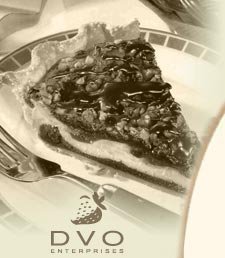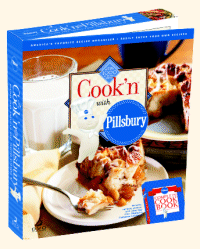
|
Never miss another recipe... Sign up for our free monthly newsletter today!
Subscribing will not result in more spam! I guarantee it! NEWSLETTER
• Current Issue• Newsletter Archive • Sign Up Now 
Cook'n with Betty Crocker 
Cook'n with Pillsbury 
Cook'n with a Taste of Home 
Cook'n in Italy 
Cook'n in Mexico |
 |
18-Moist Poultry Secrets |
|
The recipe below is complete except for the ingredient amounts (_). Since the recipes offered at DVO.com are brand name recipes, our publisher partners require us to account for each recipe distributed. To get the entire recipe click Request Recipe below. This is the best 18-Moist Poultry Secrets recipe on the web!! What is one of the biggest complaints cooks have about making chicken? It's too dry! Store-bought individually frozen or fresh chicken breasts have usually gone through a process in which the chicken was injected with a salt-water solution; these tend to be very tender, moist, juicy and are saltier. On the other hand, chicken breasts made without this process can be just a little less tender, moist and juicy. Whichever type you use, we offer you some great little secrets for moist and juicy chicken. SECRET # 1 Wrap chicken tightly during storage to prevent it from drying out. SECRET # 2 Marinating adds flavor and makes for juicy chicken. Marinate skinless boneless breasts for 1 to 2 hours and bone-in pieces up to 24 hours. SECRET # 3 Brush chicken with milk, buttermilk, Dijon mustard or mayonnaise, then roll in bread crumbs, cracker crumbs or flour before cooking. The coating helps seal in moisture. SECRET # 4 Cooking chicken with the skin on adds to the flavor, not the fat. Research has found that the fat does not transfer to the meat during cooking. So go ahead and leave the skin on-it helps keep the juices in, creates a moister, more tender meat and boosts the flavor. If you're watching your calories, fat and cholesterol, remove the skin after cooking and throw it away. SECRET # 5 Don't overcook chicken or test too often for doneness. To test for doneness, use a knife to cut into the center of the thickest part of the chicken to see if the juice is no longer pink. Only test once or twice so the juices of the chicken stay in the chicken. Do not pierce the chicken with a thick, multi-tined fork or the chicken will lose an excessive amount of juice. SECRET # 6 Don't undercook chicken either. Undercooked chicken will be tough and rubbery because it takes a certain amount of time and heat to soften the proteins in the chicken muscle. SECRET # 7 Microwave chicken to partially cook it before grilling it. Not only does this save time, but it can also help prevent overcooked, burned chicken. To microwave, put the chicken, thickest parts to the outside edges, in a microwavable dish large enough to hold all the pieces in a single layer. Cover with plastic wrap, folding back one corner to allow steam to escape. Microwave on High for about 4 minutes per pound, rotating dish after half the cooking time, until edges begin to cook; drain. Immediately put chicken on the heated grill and grill according to recipe. SECRET # 8 Use tongs instead of a fork to turn pieces in the skillet or on the grill. A fork will pierce the meat and let the juices escape. From "Betty Crocker Best Chicken Cookbook." Text Copyright 1999 General Mills. Used with permission of the publisher, Wiley Publishing, Inc. All Rights Reserved. 02-How Do I Buy Great Chicken or Turkey? 03-Poultry Storage 04-How to Flatten Chicken Breasts 05-Cutting up a Whole Chicken 06-How to Bone a Chicken Breast 07-Get the Facts on Food Safety 08-Handling Food Safely 10-Thermometer Facts 11-Roasting Chicken and Turkey 12-Great Grilling 14-Poaching Chicken 15-How Much Poultry? 16-Microwaving Poultry 17-Use Your Favorites! 18-Moist Poultry Secrets 09-Check It Out! 13-Carving Poultry |
|
|
Affiliate Program | Privacy Policy | Other Resources | Contact Us
© 2008 DVO Enterprises, Inc. All rights reserved. Sales: 1-888-462-6656 |
